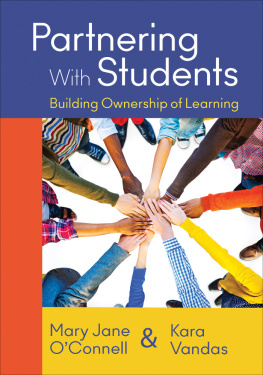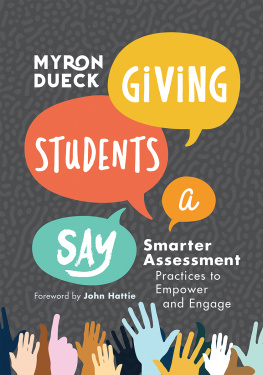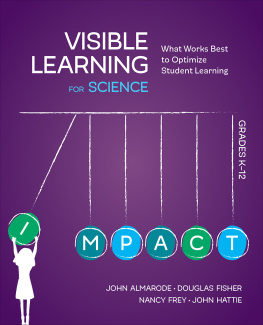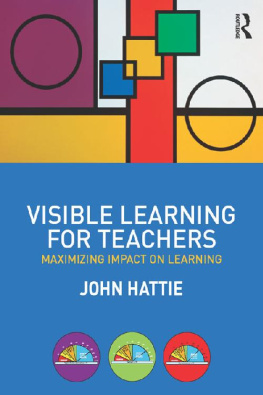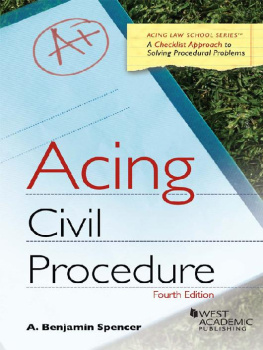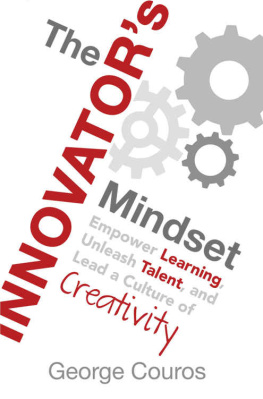John Spencer - Empower : what happens when students own their learning
Here you can read online John Spencer - Empower : what happens when students own their learning full text of the book (entire story) in english for free. Download pdf and epub, get meaning, cover and reviews about this ebook. year: 2017, genre: Religion. Description of the work, (preface) as well as reviews are available. Best literature library LitArk.com created for fans of good reading and offers a wide selection of genres:
Romance novel
Science fiction
Adventure
Detective
Science
History
Home and family
Prose
Art
Politics
Computer
Non-fiction
Religion
Business
Children
Humor
Choose a favorite category and find really read worthwhile books. Enjoy immersion in the world of imagination, feel the emotions of the characters or learn something new for yourself, make an fascinating discovery.

- Book:Empower : what happens when students own their learning
- Author:
- Genre:
- Year:2017
- Rating:4 / 5
- Favourites:Add to favourites
- Your mark:
- 80
- 1
- 2
- 3
- 4
- 5
Empower : what happens when students own their learning: summary, description and annotation
We offer to read an annotation, description, summary or preface (depends on what the author of the book "Empower : what happens when students own their learning" wrote himself). If you haven't found the necessary information about the book — write in the comments, we will try to find it.
John Spencer: author's other books
Who wrote Empower : what happens when students own their learning? Find out the surname, the name of the author of the book and a list of all author's works by series.
Empower : what happens when students own their learning — read online for free the complete book (whole text) full work
Below is the text of the book, divided by pages. System saving the place of the last page read, allows you to conveniently read the book "Empower : what happens when students own their learning" online for free, without having to search again every time where you left off. Put a bookmark, and you can go to the page where you finished reading at any time.
Font size:
Interval:
Bookmark:

E mpower
2017 by John Spencer and A.J. Juliani
All rights reserved. No part of this publication may be reproduced in any form or by any electronic or mechanical means, including information storage and retrieval systems, without permission in writing by the publisher, except by a reviewer who may quote brief passages in a review. For information regarding permission, contact the publisher at .
This book is available at special discounts when purchased in quantity for use as premiums, promotions, fundraisers, or for educational use. For inquiries and details, contact the publisher at .
Published by IMpress, a division of Dave Burgess Consulting , Inc .
ImpressBooks.org
daveburgessconsulting.com
L ibrary of Congress Control Number: 2017944259
Paperback ISBN: 978-1-946444- -
eBook ISBN: 978-1-946444- -
First Printing: June 2017

R ecently I was listening to a teacher talk about their more traditional view of education and how compliance wasnt a bad thing for students. He even went a step further, saying students should be obedient .
I cringed a little .
Okay, maybe a lot .
First off, lets look at the definition of obedient :
Obedientcomplying or willing to comply with orders or requests; submissive to anothers will .
Is this what we really want from our students? That they are simply submissive to the will of their teachers? Do we want to develop generations of students that will challenge conventional ideas and think for themselvesor simply do what they are told ?
I do not know many teachers who would want to be obedient to their principals. We teach the golden rule to our students; we must follow it ourselves .
So lets look at the word compliant .
Compliantinclined to agree with others or obey rules, especially to an excessive degree; acquiescent .
Is compliance a bad thing to teach in education? Not really. In some ways, people have to be compliant. Think of tax season. You have to be compliant with the rules that are set out by your government .
As educators, there are times when we have to be compliant in our work as well. You have deadlines that you have to meet (i.e., report cards ).
Compliance is not a bad word, but it should not be our end goal in education. My belief is that we need to move beyond compliance, past engagement, and on to empowerment .
These ideas are not separate but, in some ways, can be seen as a continuum .
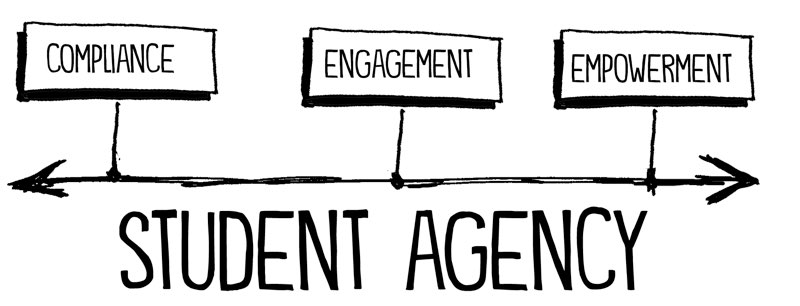
Lets go back to the word compliance. Has that really ever been the end goal of schools? Maybe as a system overall, but I think the best educators have always tried to empower their students. They know that if you are truly good at your job as an educator, eventually the students will not need you .
That is why lifelong learning has been a goal in education forever. If our students are truly compliant when they walk out of schools, they will always need someone elses rules to follow. To develop the leaders of tomorrow, we need to develop them as leaders today .
Focusing on empowering students is seen by some as fluffy; students just show up to school to do whatever they want. This is not my belief at all .
Empowering students teaches them to have their own voice and follow their own direction, but if they are going to be successful, they will need to truly have the discipline (using the definition, train oneself to do something in a controlled and habitual way) to make it happen. Empowerment and hard work are not mutually exclusive; in fact, both elements are needed to make a true difference in our world .
Think about how many of our kids in school talk about becoming YouTubers. If you truly want to make that happen, you do not apply to some job, but you will have to focus on creating content consistently over time while building an audience. This might be your dream, but to make it happen, there is a lot of work to be done. Becoming a content creator allows you to follow your own path, yet to be successful, hard work is needed .
I love this quote :
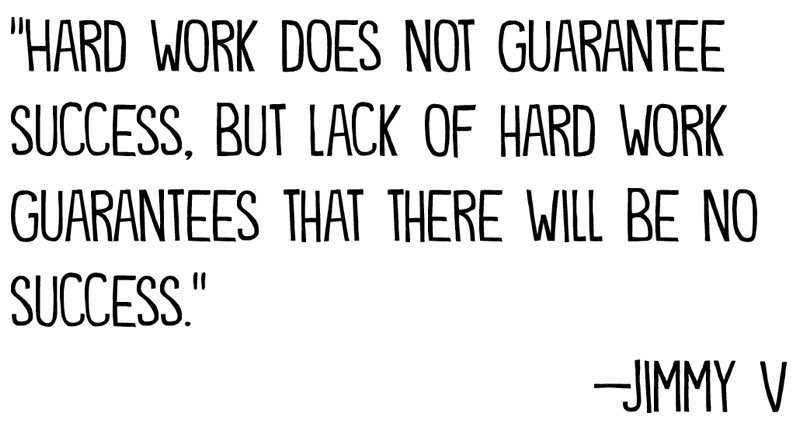
Helping students find their own pathsnot the ones we set out for themhas always been the focus in education, yet we need to be more explicit about this path .
A.J. Juliani and John Spencer do a great job of sharing why empowering our students is not only important in our world today but crucial. As they state, this is about shifting our mindset, which will ultimately lead to students not only believing they can change the world, but doing it because of school .
We all want our students to be respectful to educators and peers. Hopefully, we all want them to walk out of school, become intrinsically motivated, and find their own ways to success and happiness. Compliance is sometimes a part of this, but it is not the end goal. Are we trying to develop students to fit into our world, or are we hoping students feel they have the power to create a better world both now and in the future ?
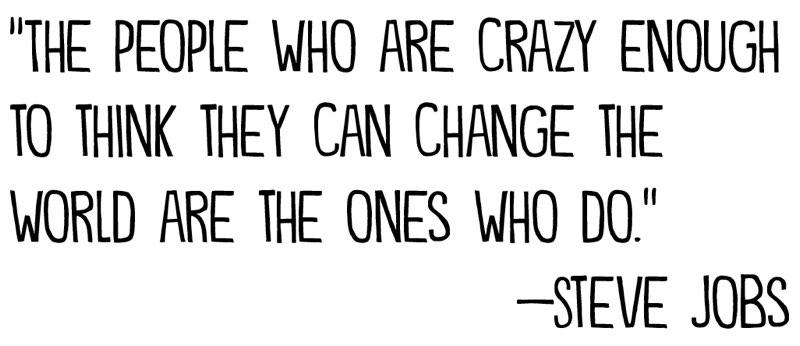
Your legacy as an educator is always determined by what your students do. You change the world by empowering your students to do the same .
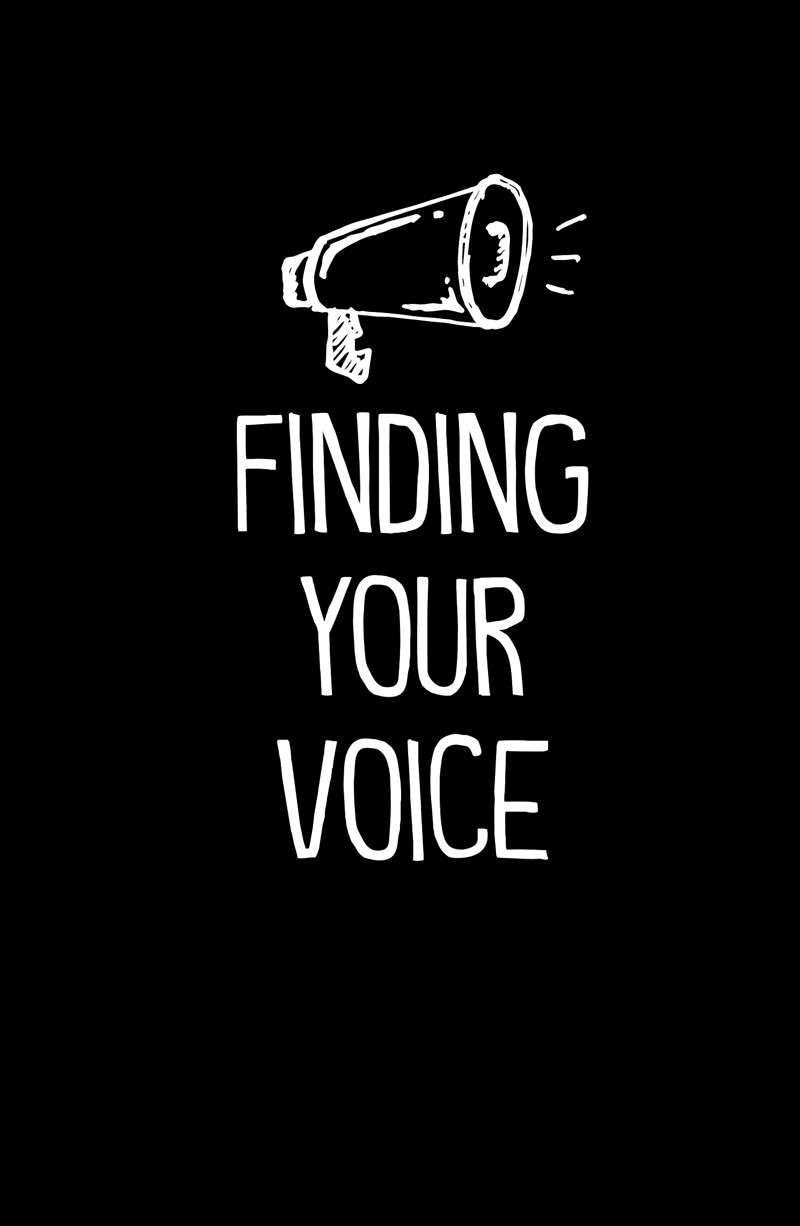
S he came rushing up to me in a panic at the start of class .
Whats wrong, Katie? Everything okay ?
Well, Mr. J, Im going to have to change my project. I really like making my own pair of sandals, but I just have to change what Im doing. Is that allowed? Will I lose points for switching my project ?
We were in the middle of our first attempt at a 20% Time project in my class. My students were given 20 percent of their time to work on something about which they were passionate and curious, and they had to take their learning and make something for a final project .
Katie had been quiet for most of the project. She didnt get fired up like a lot of my students when it was first introduced. She didnt ask a lot of questions about how it would be graded or why we were doing something different .
In fact, she had enjoyed her time so far, making sandals. It was a project that meant something to her, so I was surprised to see how anxious she was to change her project .
I responded, Yes, you can change your project, but I thought you liked what you were doing .
Katie explained that she wanted to learn sign language. Her young cousin was deaf, and she had always told herself she would learn sign language when she had time. But between school, sports, and a summer packed with work she kept on putting it off .
Now her cousin was coming to live with her family for a short period of time due to a house fire. The situation was awful. It was even more heartbreaking to Katie because she had never taken the time to learn sign language .
Font size:
Interval:
Bookmark:
Similar books «Empower : what happens when students own their learning»
Look at similar books to Empower : what happens when students own their learning. We have selected literature similar in name and meaning in the hope of providing readers with more options to find new, interesting, not yet read works.
Discussion, reviews of the book Empower : what happens when students own their learning and just readers' own opinions. Leave your comments, write what you think about the work, its meaning or the main characters. Specify what exactly you liked and what you didn't like, and why you think so.

